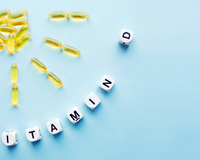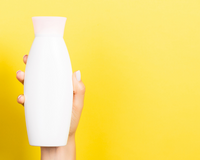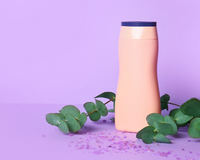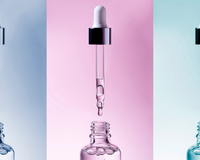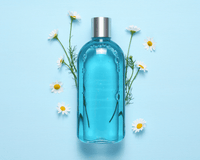Hyaluronic acid skin care is the therapy of the skin. So what is this, let's have a look together. Hyaluronic acid (HA) is a glycosaminoglycan that occurs naturally in the body's connective tissue. Glycosaminoglycans are sugars that are also known as polysaccharides or long unbranched carbohydrates. HA is the primary component that adds structure to your skin and gives it a plump and dewy appearance. You may have heard about collagen, but where it is located is in hyaluronic acid.
With all of the discussion around anti aging, it's time to speak about hyaluronic acid, its advantages for our skin, and why the molecular weight of an ingredient matter! It plays a crucial function in wound healingTrusted Source, and its levels decline as we age, rendering us more prone to sagging and wrinkles. Continue reading to learn about the science of hyaluronic acid and why it's more than just an out of date component in your beauty routine. Hyaluronic acid skin care is of great importance in skin care. It has many benefits for the skin.
Skin Care
Skin care is something that we should all pay attention to. Because our skin is our most important garment. It covers every part of our body. There are only simple steps we need to follow. If we do these, we can have baby skin. We should do as we should, without skipping anything. Only then would it be effective care. If you make it a routine after that time, you can achieve very good results. With a little research you should find what you need to do. You will be able to continue on your way by finding your skin type and then the appropriate products.
What are the Advantages of Using Hyaluronic Acid?
What makes hyaluronic acid so special? For starters, HA has the ability to bind up to 1000 times its weight in water! In other words, it serves as a moisturizer, trapping water molecules on the skin's surface to keep it wet.
When we talk about well-hydrated skin, we mostly mean skin that has a lot of water in it. Perhaps you've heard of the phrase transepidermal water loss, abbreviated TEWL. This is the scientific phrase for calculating the amount of water that evaporates from the skin. When a product inhibits TEWL, it implies that it maintains your skin moisturized by preventing water from evaporating from the skin's surface. By decreasing the rate at which water evaporates, hyaluronic acid accomplishes just that. Aside from being an excellent moisturizer, numerous studies have revealed that it is also excellent for wound healing!
Diameter of Hyaluronic Acid
The width of the hyaluronic acid is particularly significant since it influences the ingredient's capacity to enter the skin. A recent study trusted Source looked at the effectiveness of a topical, low molecular nano hyaluronic acid and discovered that smaller compounds with molecular weights less than 500 kDa:
- Adjusted the wrinkle dept.
- Heightened humidity
- Greater flexibility in the area surrounding the eyes
- More easily absorbed by the skin
- Molecules having molecular weights greater than 500 kDa have a more difficult time penetrating the epidermal barrier.
Precautions and Possible Side Effects
- In general, hyaluronic acid is relatively safe to use, with minimal documented adverse effects.
- Allergic responses are quite rare since the body generates them normally.
- There were no significant side effects observed in a trial of 60 patients with osteoarthritis who took 200 mg daily for a year.
- However, its effects during pregnancy and nursing have not been thoroughly investigated, therefore these populations should proceed with caution and avoid supplementing.
- There is also evidence that cancer cells are sensitive to hyaluronic acid and that taking supplements might cause them to proliferate more quickly.
- As a result, it is typically advised that persons with cancer or a family history of cancer avoid using it.
- Side effects are more likely with hyaluronic acid injections into the skin or joints. However, unfavorable responses are more commonly associated with the injection technique than with the hyaluronic acid itself.
Moisturizer
Moisturizers are widely utilized in skin care. Consider a moisturizer to be similar to a sponge; once gathered, it will continue to draw and hold moisture. They are capable of hydrogen bonding and attract water. Glycerin, sorbitol (sugar alcohol), hexylene and butylene glycol, and, of course, hyaluronic acid are all moisturizing ingredients in skin care products. Hyaluronic acid serves as a moisturizer and continues to pull moisture from the surrounding environment after filling the epidermis with essential moisture. This will supply the skin with long lasting moisture. It is important for your skin.
Formation of Lipid Barriers
Our skin's primary job is to protect our bodies. To put it simply, our skin regulates our internal organs, muscles, bones, and so on, as well as protecting them from the outside world. However, our skin also shields our bodies from the hazardous chemicals that we are exposed to on a daily basis.
The top layer of skin bears the brunt of external injury. The lipid barrier in the epidermis slows down as we age. UV radiation, pollution, and lifestyle choices all cause harm. This damage causes finer lines and wrinkles, as well as dark patches and drier skin.
Hyaluronic Acid fortifies the skin's natural barriers, allowing moisture to be locked in pro an even more dramatic hydration impact. This can help delay the degradation of the lipid barrier while also protecting and strengthening it over time.
Increased Adaptability
The skin can better defend itself against environmental aging causes and contaminants when the lipid barrier is reinforced and preserved by hyaluronic acid. When it is not fighting these toxins, the skin is less wrinkled, brighter, and lasts longer.
A helpful reminder: Preservatives in many products might weaken your barrier by killing the beneficial bacteria that protect your skin's surface from pollutants. As a result, moisture is lost, as well as the possibility of discomfort and infection. Look for items with few ingredients and few preservatives. Many people with oily or acne prone skin prefer to use harsher chemicals to remove oil from their skin. It is critical to understand that most acne-prone skin lacks a robust lipid barrier, which promotes inflammation and irritation. Pure Hyaluronic Serum moisturizes your skin and helps protect the lipid barrier. And they recommend it for people with sensitive or acne prone skin.


